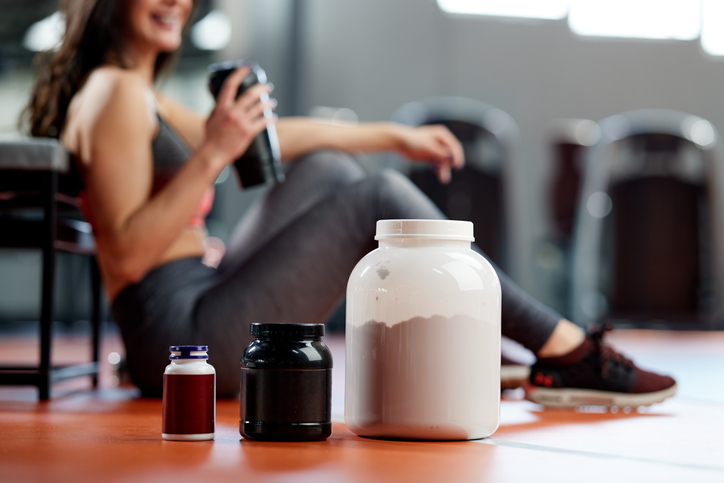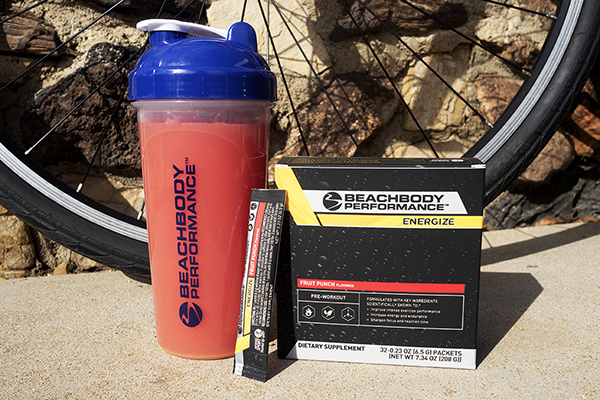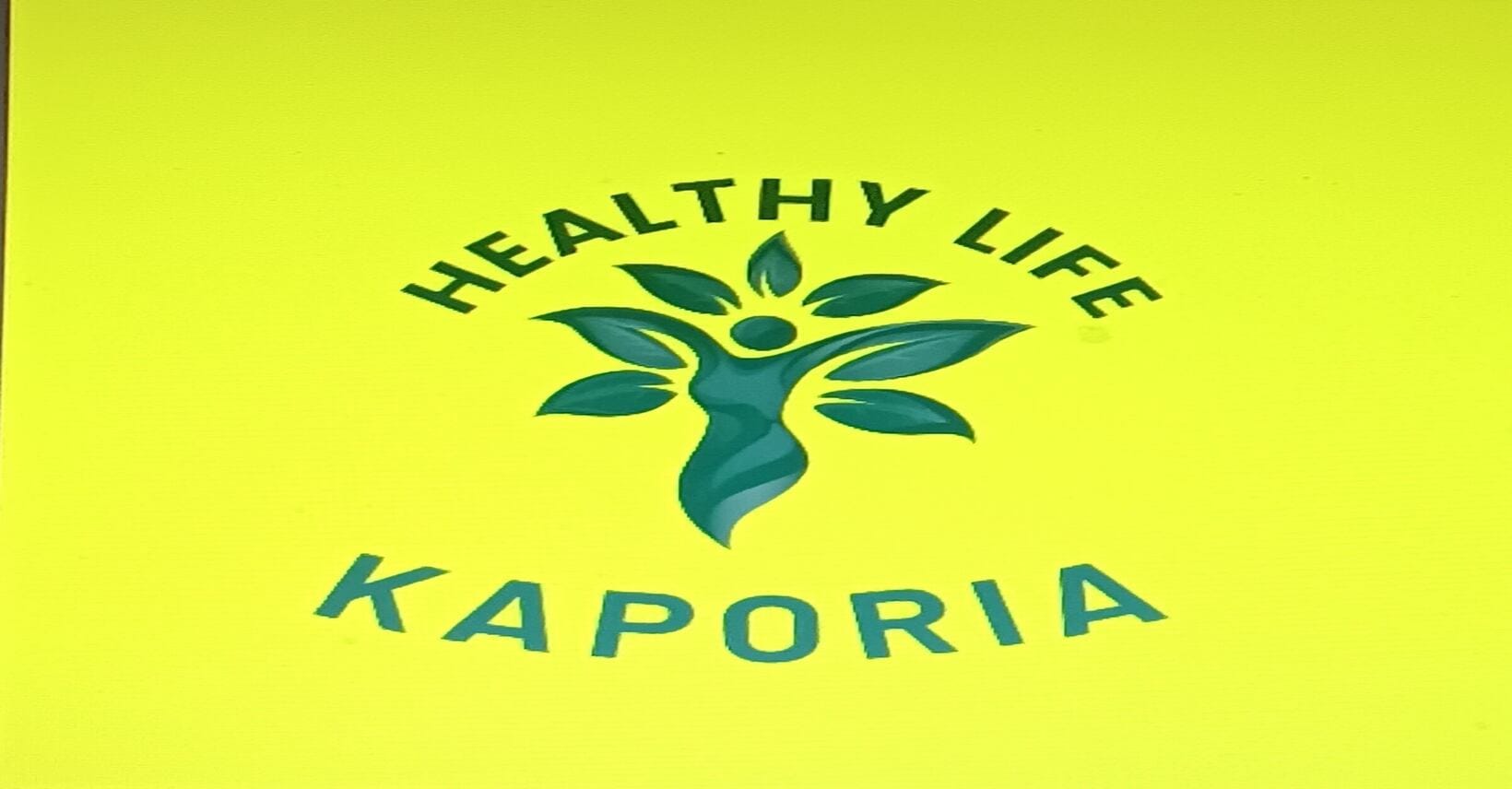[ad_1]
So, you will have a difficult exercise scheduled after work, however you’re feeling a little depleted. Squeezed for time, you make a pit-stop at a comfort retailer. You scan round in search of one thing which may assist energy you thru your session — bananas, mixed nuts, bottled water — and see, within the cooler, a shelf of brightly coloured vitality drinks promising precisely what you want.
There’s one which boasts hours of focus, one that every one however ensures large muscle tissue, one that claims it should pump you up until you just about explode. However what these vitality drinks don’t embrace on the label is that their major components are sugar and a hearty dose of caffeine.
Perhaps it’s time to vary our pondering. Pre-workout supplements are formulated that will help you optimize efficiency, notably throughout higher-intensity actions, and are decidedly a better option than run-of-the-mill vitality drinks. Right here’s why.
The Professionals and Cons of Vitality Drinks
1. Sugar
Professional: Calories and sugar get a foul rap in our weight-obsessed tradition. Energy are merely a measure of the quantity of vitality in a meals, and sugar is an environment friendly, palate-pleasing fuel for a lot of physique features. To carry out at your greatest, you want enough quantities of each. That goes double should you’re an everyday exerciser.
Attempting to get by way of a tough exercise on a totally empty abdomen — notably should you’re doing one thing anaerobic like lifting weights or HIIT — will be like dragging a cussed canine to the vet: You would possibly get there finally, however will probably be a battle each step of the way in which.
That’s why most experts recommend consuming a full meal an hour or two earlier than performing anaerobic train — or, failing that, fueling up beforehand with a small snack like a chunk of fruit.
Con: In the event you’re making an attempt to maintain your fats shops in examine, extra added sugar will work in opposition to your efforts. True, you burn a few of that sugar throughout your exercise, however, like the rest you devour, the sugar and energy in that vitality drink issue into the calories-in, calories-out equation that determines should you lose weight, gain weight, or stay the same weight in the long run.
“The excessive quantities of sugar present in vitality drinks should not the easiest way to gas for train,” says Paul Falcone, principal scientist at BODi. “It additionally could contribute extra energy that won’t provide help to obtain your general well being targets.”
2. Caffeine
Professional: Caffeine is one other frequent lively ingredient in vitality drinks — and analysis has proven that it may be an efficient one. A meta-analysis concluded that caffeine had “important ergogenic [performance-enhancing] results…on maximal muscle power of higher physique and muscle energy.”
One other small study discovered that caffeine enhanced jumping ability in feminine athletes. So, should you’re on the hunt for a authorized, secure, and efficient approach to give your fitness center efficiency a measurable increase, look no additional than the lively ingredient in your morning cup of joe.*
Con: However like sugar, caffeine has limits. Take too much, too usually and also you not solely get jittery — you develop into extra tolerant to its results in order that what as soon as hyped you up now barely will get you to baseline. Furthermore, some vitality drinks comprise upwards of 300 mg of caffeine — properly over half the every day quantity thought-about “safe.”
3. BCAAS
Branched-chain amino acids — leucine, isoleucine, and valine — are one other ingredient generally present in sports activities dietary supplements. All three BCAAs are plentiful in meals that comprise protein (together with dairy, animal, and vegetable sources), so it’s not essential to devour massive quantities of them in complement type — notably earlier than a exercise.
“Typically, BCAA’s play a better position after your exercise to help in restoration and rebuilding,” says Falcone.
What Ought to You Devour As an alternative of Vitality Drinks?

Are there higher decisions to make earlier than your exercise? Completely.
It’s possible you’ll expertise intense train as a muscle-pumping, leg-churning sweat-fest, however on a molecular stage, a exercise is a rating of complicated chemical substances, all reacting at blinding pace again and again: gas changing to a usable type; gas burned and became kinetic vitality; muscle fibers gripping and releasing from each other; waste products clearing; back-up fuels mobilize; oxygen pumps into the system and carbon-dioxide pumps out.
Tailoring what you devour beforehand to your exercise — as with a pre-workout supplement — can influence how effectively these chemical reactions happen and whether or not you shamble out of the fitness center feeling like a dishrag or fly out feeling like a superhero.
How Pre-Exercises Assist Your Routine

Among the components which are notably useful to high-intensity train are:
- Caffeine to assist present vitality and improved focus and a spotlight.*
- Beta-alanine helps you fight fatigue and carry out higher by serving to your physique produce extra of the amino acid carnosine. This amino buffers muscle acids that consequence from train. *
- Quercetin is a robust phytonutrient that works synergistically with caffeine and beta-alanine to assist delay exercise-induced fatigue and increase efficiency.*
“Caffeine and beta-alanine are a few of the most clinically-researched components accessible in the marketplace,” says Falcone. “And the proof exhibits that they may also help you get essentially the most out of your exercises.”
Falcone’s advice: Skip the vitality drinks and go for one thing formulated that will help you attain your targets the quickest: “Energize Pre-Workout supplies key components to optimize your exercise that aren’t present in vitality drinks,” says Falcone. “These components present extra than simply vitality — they assist to battle fatigue throughout train and to boost power features.”*
*These statements haven’t been evaluated by the Meals and Drug Administration. This product shouldn’t be meant to diagnose, deal with, remedy, or forestall any illness.
[ad_2]
Source link

